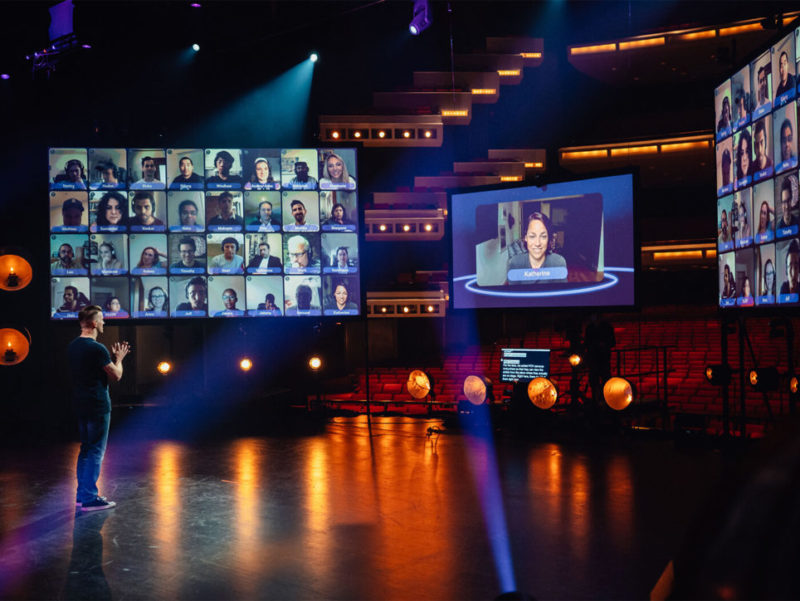Event planning is getting better with proper event management. One sure way of event management is the presence of trustworthy event staff.
The fate of an event is not only on the host but also on some external hands. Whether an event will be successful or not has to do with many factors and these factors cannot all be sorted by the host. Sadly, many events crashed before the event started due to poor planning.
This is where event staff comes in.
What Is Event Staff?
The event staff is the group of professionals who takes care of an event.
These professionals have different duties they carry out. The advantages of having event staff cannot be overemphasized.
They are the forces that keep the event running. Imagine the unavailability of food, accidents, lack of power, or uncoordinated sitting arrangement in an event.
All these can be prevented when hosts hire event staff.
Types of Event staff
There are several teams when it comes to event personnel. These teams have different responsibilities which must be taken care of before, during, and after the event. For an event to be successful, these positions must be filled.
One thing to note is that these teams are not of the same hierarchy. This means that one is greater than the other when it comes to the execution of their duties.
Director Or Event Planner
It is often advisable to contact an event planner that will direct all other operations regarding the event planning. This professional ensures all other event workers are performing their duties as expected.
This position is very important.
Having an event director helps the host focus on other aspects of the event like getting the speakers ready.
Event Producer
Below the event planner or director is the producer. This person oversees the execution of tasks as directed by the planner.
The job is to provide all tools and equipment the event staff need to carry out their post duties.
Caterer
What is an event without refreshment? This is not a post the host can handle individually.
Even if the host is a professional caterer, there are other things to focus on. Having an expert caterer who will take care of the food and drinks is very crucial to the success of the event.
The catering service shows the standard of the event. These services include table setting, food making and sharing, cleanup, etc.
Field Staff
The field staff is a team of event workers that coordinate the event hall/space.
These people are much closer to the attendees because of their job descriptions. They are like ushers and stewards.
They are in charge of ticketing, helping attendees find their way, and ensuring coordination during the event.
Tips for hiring a Speaker for an Event
Entertainment
Like catering, entertainment is another aspect of the event that should not be overlooked. The kind of entertainment to provide depends on the nature of the event. Entertainment must not be out of place because it has to connect with the event atmosphere and mood of the attendees.
Security
The security team handles everything related to the safety of the lives and properties of everyone involved in the event.
Hosts can seek volunteers or employ the police or private security outfits.
Planning And Logistics
This group takes care of the transportation and movement of attendees and equipment.
Ambassadors
Event ambassadors add glamour to the event. They are the face of the event. Attendees can recognize them by their clothes, the tags on them, or their faces on fliers.
This team of models is not necessary for an event.
Why Hiring An Event Coordinator Is Important
While many hosts prefer to do the event planning themselves, some others hire an event manager. The fees might be something to consider, but it is not enough reason to shelve the idea of hiring a planning professional for an event. Below are some reasons why every host should hire an event planner:
- A professional event planner brings professionalism to event planning. .
- An event coordinator takes care of everything related to the execution of the event.
- They can handle the recruitment of event workers without stressing the host
- An event planner can help the host achieve their event goals more expertly.
- The events managed by an expert event planner are usually of a high standard.
- An event manager knows what to do when to do it, how to do it, and through whom to do it.
What To Keep In Mind When Hiring Event Staff
Hiring event staff may be done by the host or the event planner. If the host contracts an event planner to handle this process, the following are what the planner must consider hiring the best event personnel:
- Understand the legal aspect of the arrangement by making a contract that is legally binding with the event staff.
- Planning an event staff budget with the host. The planner must also stick with the budget to properly manage funds.
- An event planner must know what the client prioritizes in event planning so they can focus on those areas.
- They can seek referrals and recommendations from event workers to save time and energy.
- Conducting interviews with staff event candidates to pick the best.
- An event planner must identify the major areas of the event like event production, logistics, security, entertainment, and catering.
Conclusion
At this point, we can conclude that hosts cannot do without event staff. That is why SmartWorks continues to deliver the best and most reliable event planning services.
The purpose is to help event hosts achieve their event goals.
The services offered are wrapped in professionalism and passion to give taste and standard to the event.
At SmartWorks, we offer a complete spectrum of events management that covers:
- Staff for all kinds of events (hostess, models, security, basic hands)
- Venue selection
- Off-site private gala dinner venue, restaurant selection, and management
- Activity creation & management – leisure, cultural, team-building
- Catering management
- Transfer & Logistics management
- Incentives
- Latest AV solutions
- Special decoration, design, and entertainment for all venues
- VIP guests & motivational speakers
- Exhibition design & Production
- Housing & Registration










